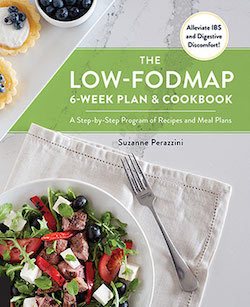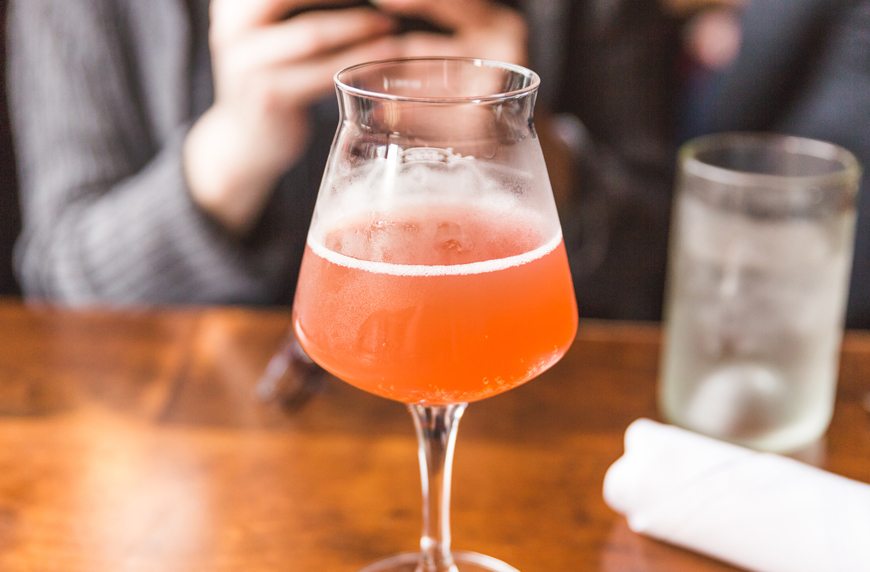Kombucha has a rep for being the wellness world's gut-healthy drink of choice. Even people averse to the slightly vinegary taste will plug their nose and down it—you know, for digestion's sake. But last month when uber-popular healthy food blogger Lee Tilghman—AKA Lee From America—posted on Instagram that she doesn't drink kombucha because it can trigger her irritable bowl syndrome (IBS), the post received almost 11,000 likes and over 650 comments. Clearly her experience resonated with a lot of people.
In her post, Tilghman says that kombucha is very high in FODMAPs, a group of foods known to aggravate IBS symptoms. "Therefore, kombucha can cause irritable bowel syndrome symptoms in many—bloat, constipation, diarrhea, gas," her post says. "For some, a little bloat here and there doesn’t mean much. But if you struggle with IBS, then you know that the struggle is real and can get in the way of your quality of life, work, and family time."
Is she on to something? Here, two IBS experts tackle the kombucha-IBS debate. Can the beloved probiotic beverage actually be hurting your gut? Keep reading to find out.
Scroll down to find out if kombucha is bad for IBS.

The low-FODMAP ruling on IBS

Suzanne Perazzini, author of The Low-FODMAP 6-Week Plan and Cookbook and a nutritional therapist specializing in IBS and low-FODMAP diets, got her training at Monash University in Australia—the exact place where the low-FODMAP eating plan was developed. And yep, the curriculum covered the 'booch.

{{post.sponsorText}}
"Monash University has tested the FODMAP content of kombucha, and it is high in FODMAPs, so it'll cause IBS symptoms at a full cup of eight ounces," she says. A smaller serving—about six ounces—should be A-okay, however. (Most full bottles are 16 ounces and include two servings.)
Perazzini says people with IBS should avoid carbonated drinks in general because they introduce gas into the digestive system. "Excess gas stretches the gut, causing cramping and pain due to its hypersensitivity," she explains.
But just because kombucha has FODMAPs doesn't mean everyone with IBS needs to limit their intake. The connection is a bit more complicated than a one-and-done rule.

Every microbiome is different
What makes IBS so difficult to treat is that it has been historically tricky to pinpoint its triggers. Global medical company Biomerica, however, has developed a diagnostic tool for IBS patients that uses a simple blood test to identify the problem foods so that people know exactly what they need to avoid. "The test detects what causes antibodies in that individual's body, which then cause an inflammatory response," Biomerica CEO Zack Irani-Cohen explains. And on a macro level, the tool, called InFoods, has given the company great insight into what many with IBS are and aren't sensitive to.
If you're a gut-health superfan, you might not find Irani-Cohen's main takeaway all that shocking: No two people are alike. "The microbiome is like a fingerprint," he says. "It’s very rare two people have exactly the same foods that come up causing inflammation."
"The microbiome is like a fingerprint. It’s very rare two people have exactly the same foods that come up causing inflammation." — Zack Irani-Cohen, Biomerica CEO
According to Irani-Cohen, to blanketly recommend an eating plan to someone to "treat IBS" is akin to saying that someone should avoid certain activities because they have "allergies." "That's not helpful; allergic to what?" he says. You wouldn't treat a peanut allergy the same way you would hay fever—and it's no different for gut issues. "Kombucha might be okay for some people with IBS, but not for others," Irani-Cohen says. "Some people may benefit from the good bacteria in the kombucha, but others might have too much of that specific bacteria in their gut already and it could cause an overgrowth and backfire."
He also points out that not everyone makes kombucha the same way. "A lot are flavored, so someone could be having a reaction to a specific ingredient," he says. While all of this may sound super frustrating—Just tell me if I can have it or not!—Irani-Cohen offers up a helpful tip: Just try it and see how you feel. Your body will communicate to you if something is helpful or hurtful.
Living the low-FODMAP life doesn't mean giving up Mexican. And here are bloat-busting meals you can make in 15 minutes or less.
Loading More Posts...